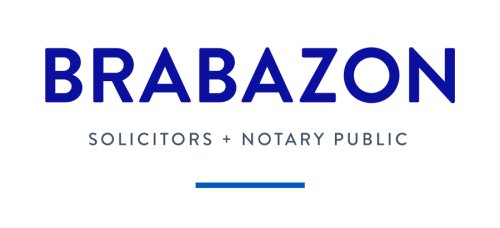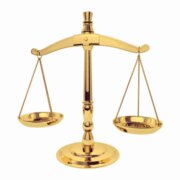Best Wage & Hour Lawyers in Ireland
Share your needs with us, get contacted by law firms.
Free. Takes 2 min.
Or refine your search by selecting a city:
List of the best lawyers in Ireland
About Wage & Hour Law in Ireland
Wage and Hour Law in Ireland is designed to protect workers from unjust labor practices, ensuring they receive fair pay and appropriate working conditions. The laws set standards for minimum wage, working hours, paid leave, and more to maintain a balance between employer rights and employee welfare. Key legislation includes the Organisation of Working Time Act, 1997, and the National Minimum Wage Act, 2000, among others.
Why You May Need a Lawyer
There are several situations where legal assistance might be necessary in the field of Wage & Hour in Ireland. These include disputes over unpaid wages, failure to pay minimum wage, issues regarding working time and breaks, non-compliance with contract terms, and disputes over holiday and leave entitlements. A lawyer can offer advice, resolve disputes, guide through legal procedures, and represent in court if needed.
Local Laws Overview
Understanding local laws is crucial for both employers and employees. Key aspects of Irish Wage & Hour laws include:
- Minimum Wage: Employees are entitled to a minimum hourly wage, which may vary based on age and work experience.
- Working Time: The law limits the average working hours to a maximum of 48 hours per week and mandates rest breaks.
- Overtime Pay: While there is no statutory entitlement to extra pay for overtime, terms are usually set in the contract.
- Paid Leave: Employees are entitled to annual leave, public holidays, and other forms of statutory leave.
- Record Keeping: Employers must maintain specific records regarding hours worked and wages paid.
Frequently Asked Questions
What is the current minimum wage in Ireland?
The national minimum wage in Ireland is subject to periodic updates; it's advisable to check the latest rates from official sources as it changes regularly.
Are employees entitled to breaks during work hours?
Yes, employees are entitled to breaks under the Organisation of Working Time Act, 1997. The specific break times depend on hours worked.
How can I claim unpaid wages?
You can begin by addressing the issue with your employer, and if unresolved, seek resolution through the Workplace Relations Commission or legal assistance if necessary.
What are standard working hours in Ireland?
The standard working hours are usually capped at an average of 48 hours per week. However, this can vary depending on the contract and industry norms.
What constitutes overtime in Ireland?
Overtime refers to any time worked beyond the standard working hours specified in the employment contract, though specific terms may vary.
How is holiday leave calculated?
Annual leave entitlements can be calculated based on hours worked, typically stated in the employment contract or guided by statutory provisions.
Can an employer refuse annual leave requests?
Employers can refuse leave requests based on business needs, but such refusals must comply with employment laws and contract terms.
What are my rights if made to work beyond my contracted hours without pay?
You have the right to raise a grievance, seek resolution through the Workplace Relations Commission, or obtain legal advice if necessary.
Where can I check my employer’s compliance with wage laws?
You can request to see your payslips and work hour records. Employers are obligated to maintain these records accurately.
How do public holidays impact my wages?
Employees are typically entitled to paid leave on public holidays or compensatory pay if they work on such days, subject to employment contracts.
Additional Resources
Here are some resources to help you better understand Wage & Hour laws in Ireland:
- Workplace Relations Commission: Offers services for resolving disputes and providing information about workplace relations.
- Citizens Information: Provides detailed information about employment rights and entitlements.
- Department of Enterprise, Trade and Employment: Offers guidance on employment law and compliance.
Next Steps
If you require legal assistance with Wage & Hour issues, consider the following steps:
- Identify the specific issue or dispute you are facing.
- Collect all relevant documents, such as your employment contract, payslips, and records of hours worked.
- Consult with a professional legal advisor or a solicitor with experience in employment law.
- Consider contacting the Workplace Relations Commission if you need to resolve disputes.
Taking these steps can help you to navigate your Wage & Hour concerns more effectively and ensure your rights are protected.
Lawzana helps you find the best lawyers and law firms in Ireland through a curated and pre-screened list of qualified legal professionals. Our platform offers rankings and detailed profiles of attorneys and law firms, allowing you to compare based on practice areas, including Wage & Hour, experience, and client feedback.
Each profile includes a description of the firm's areas of practice, client reviews, team members and partners, year of establishment, spoken languages, office locations, contact information, social media presence, and any published articles or resources. Most firms on our platform speak English and are experienced in both local and international legal matters.
Get a quote from top-rated law firms in Ireland — quickly, securely, and without unnecessary hassle.
Disclaimer:
The information provided on this page is for general informational purposes only and does not constitute legal advice. While we strive to ensure the accuracy and relevance of the content, legal information may change over time, and interpretations of the law can vary. You should always consult with a qualified legal professional for advice specific to your situation.
We disclaim all liability for actions taken or not taken based on the content of this page. If you believe any information is incorrect or outdated, please contact us, and we will review and update it where appropriate.
Browse wage & hour law firms by city in Ireland
Refine your search by selecting a city.
















